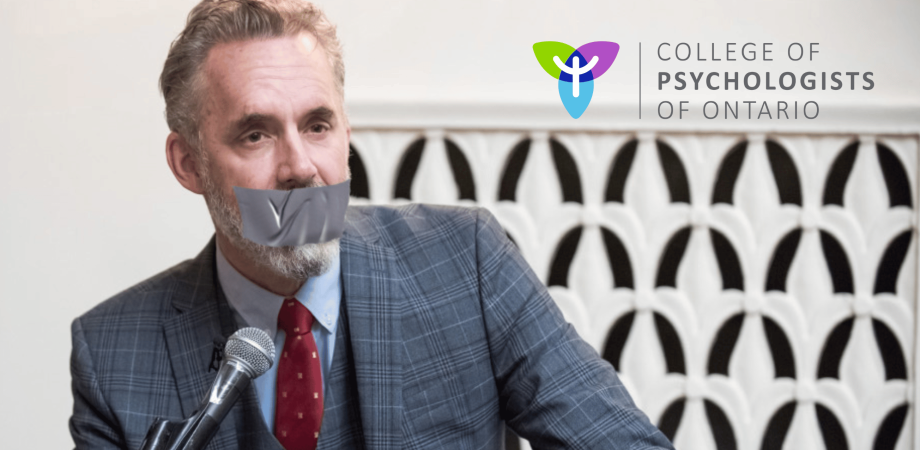The censors come for Peterson
- National Post
- 2 Sep 2023
There is an eight-word statement in the recent court judgment against psychologist Jordan Peterson that should send chills down the spine of anyone who is under the impression that freedom of speech is a guaranteed right in Canada.
Ontario’s Superior Court of Justice found the College of Psychologists of Ontario was within its rights to order Peterson to undergo coaching following a series of tweets the college found unbecoming of a psychologist.
“The Decision simply requires him to have coaching,” said the court. Simply!
The court acknowledged that Peterson’s right to free speech would be curtailed; that he would be required to undergo coaching so that he could “reflect on, and ameliorate (his) professionalism in public statements;” that he would have to pay for that coaching and that if he failed the program he could be subject to disciplinary action.
How is all that a simple matter?
The coaching was not disciplinary, said the college, and the court agreed, it was merely “remedial” as if Peterson needed to be cured of expressing his opinion.
Peterson’s tweets should have been of no concern to the college since they had nothing to do with his being a psychologist.
PETERSON’S TWEETS SHOULD HAVE BEEN OF NO CONCERN.
Professionals are entitled to a private life after all.
In one tweet Peterson told an individual concerned about overpopulation: “You’re free to leave at any point.”
He called Catherine Mckenney, an Ottawa City Councillor who uses they/ them pronouns, an “appalling self-righteous moralizing thing.”
Of a plus-sized model on a Sports Illustrated Swimsuit Edition, he said, “Sorry. Not Beautiful. And no amount of authoritarian tolerance is going to change that.”
No doubt some people will find the comments offensive. But Peterson is allowed his personal views. Do they rise to the level of “degrading, demeaning and unprofessional” conduct by someone who also happens to be a psychologist? And if they do then why not launch disciplinary action rather than force someone to undergo mandatory coaching with its inescapable echoes of Mao’s re-education camps for those suspected of wrongthink.
Interestingly, Peterson has said that as a psychologist he was duty bound to raise at least some of the issues in the tweets.
“I am stating my opinions on Twitter and social media in my professional capacity,” he told Fox News this week. “So, for example,” he said, referencing comments he made about actor Elliott Page, “I am not the least bit happy about what the sadistic surgeon butchers are doing to minors and I’m also not very happy about narcissistic, let’s say, celebrities parading off their new enhanced bodies and enticing young women, for example, into being sterilized and butchered. I think I have a professional obligation, like all therapists and all physicians, to say very clearly that this is 100 per cent absolutely not acceptable.”
Even so, none of the complaints to the college had anything to do with Peterson’s treatment of patients. None of those who filed the complaints, according to Peterson, were ever his patients, despite some claiming to be so.
One cannot imagine, at least not yet, the federal government taking a Canadian to court for expressing such comments. Section 2 (b) of the Charter of Rights and Freedoms states that Canadians are guaranteed “freedom of thought, belief, opinion and expression.”
Which is all well and good, but too many Canadians forget that Section 1 of the Charter says that all those fundamental freedoms are subject to “reasonable limits prescribed by law as can be demonstrably justified in a free and democratic society.”
Yet, the wording of the charter isn’t necessarily the problem, but, rather how it is interpreted. When reviewing government legislation, courts apply a rigorous legal standard to determine whether or not a limitation to a Section 2 right can be justified. When it comes to government-empowered regulatory bodies, however, whatever safeguards existed, have been dismantled. Regulators are held to a less-stringent legal standard, permitting them to infringe rights if their decision to do so “falls within a range of possible, acceptable outcomes.”
These bodies were set up by provincial or federal governments — governments that would be thrown out in a heartbeat if they tried to undermine the Charter in this way. And yet, we have granted these bodies so much power that their zealous overreach extends to enforcing the kind of speech they deem right and proper.
In ruling in the college’s favour, the Ontario court engaged in some specious reasoning.
“The order is not disciplinary and does not prevent Dr. Peterson from expressing himself on controversial topics; it has a minimal impact on his right to freedom of expression.”
But that “simply” isn’t true.
The college wants to stop Peterson from speaking on controversial topics, that’s the whole point. And of course, it will have more than a minimal impact on his right to free expression. The whole purpose of the specified continuing education or remedial program (SCERP) is to limit what he says until the concerns of the college “have been appropriately remediated.”
We have handed one of our most precious freedoms over to a body unelected by the people in the name of it being “simply” coaching. Peterson may be the lightning rod now, but many people will be caught in the storm.

